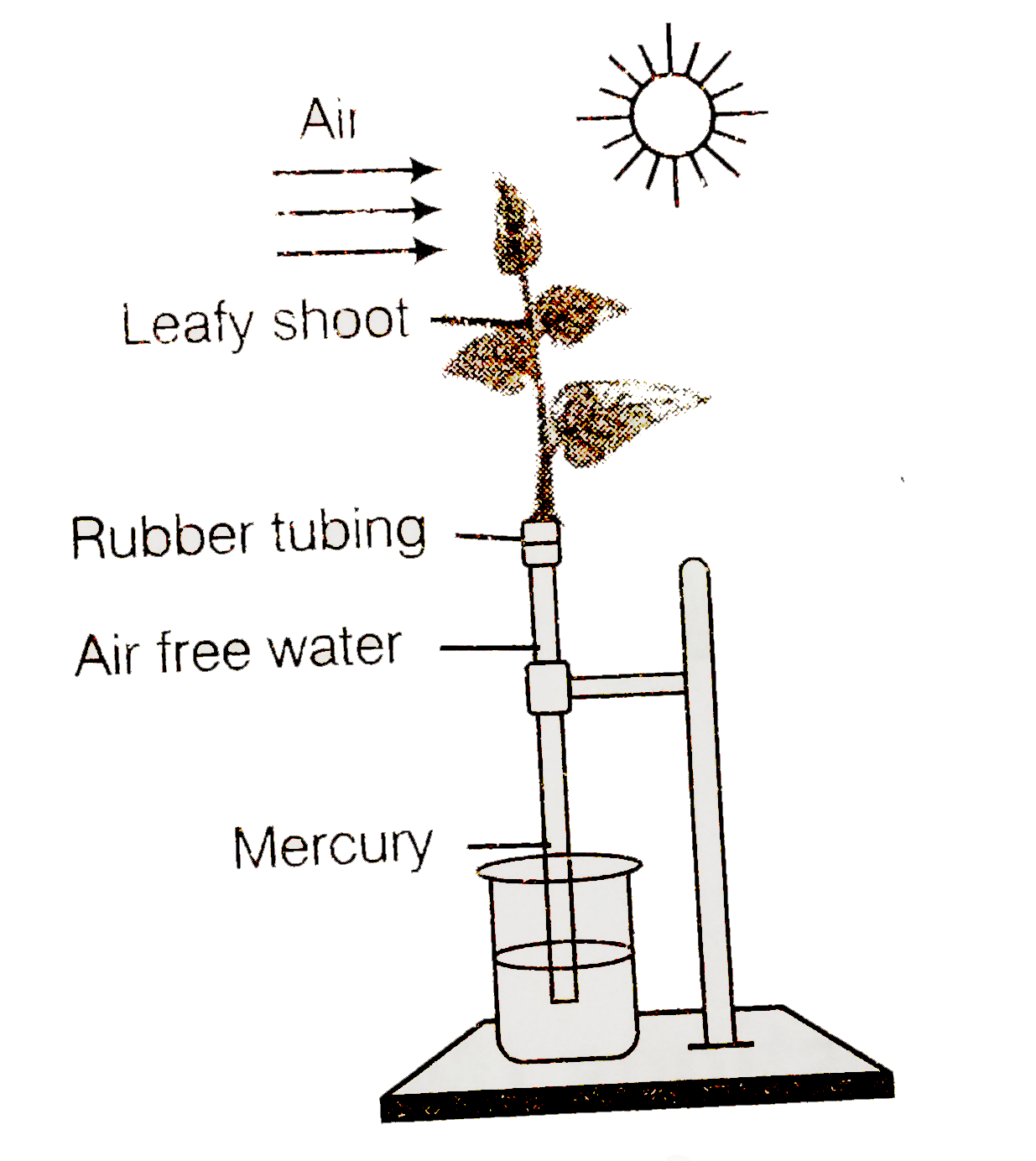Spraying the plant surfaces with silicon emulsion and phenyl mercuric acetate results in
increased transpiration
decrease in transpiration
increase in photosynthesis
increase in respiration
The correct Answer is:B
Step by step video, text & image solution for Spraying the plant surfaces with silicon emulsion and phenyl mercuric acetate results in by Biology experts to help you in doubts & scoring excellent marks in Class 12 exams.
Updated on:21/07/2023Topper's Solved these Questions
Similar Questions
Name a plant, which accumulate silicon.
View SolutionComment on the experimental setup.

(a) What does the setup demonstrate ?
(b) What will happen to the level of water if a blower is placed close to setup ?
(c) Will the mercury level fluctuate (go up/down) if phenyl mercuric acetate is sprayed on leaves ?
View Solution
Knowledge Check
Phenyl mercuric acetate (PMA) result in:
AReduced photosyntheisBReduced transpirationCReduced respirationDKilling of plants.Phenyl Mercuric Acetate (PMA) is a
AAnti-transpirantBIncreased transpirantCIncreased ascent of sapDNone of theseThe spraying of phenyl mercuric acetate in leaves
Aincreases transpirationBreduces transpirationCincreases rate of photosynthesisDcauses guttation
Compare the results of hydroboration oxidation and mercuric ion-catalysed hydration for
Cyclohexyl-actylene
View SolutionEmulsions of polyvinyl acetate are used in :
View Solution[A]: Antitranspirants are material applied to plants for retarding transpiration.
[R]: Abscisic acid and phe_nyl mercuric ac- etate are not antitranspirants.
View SolutionEmulsions of polyvinyl acetate are used in
View SolutionEmulsions of polyvinyl acetate are used in
View Solution
